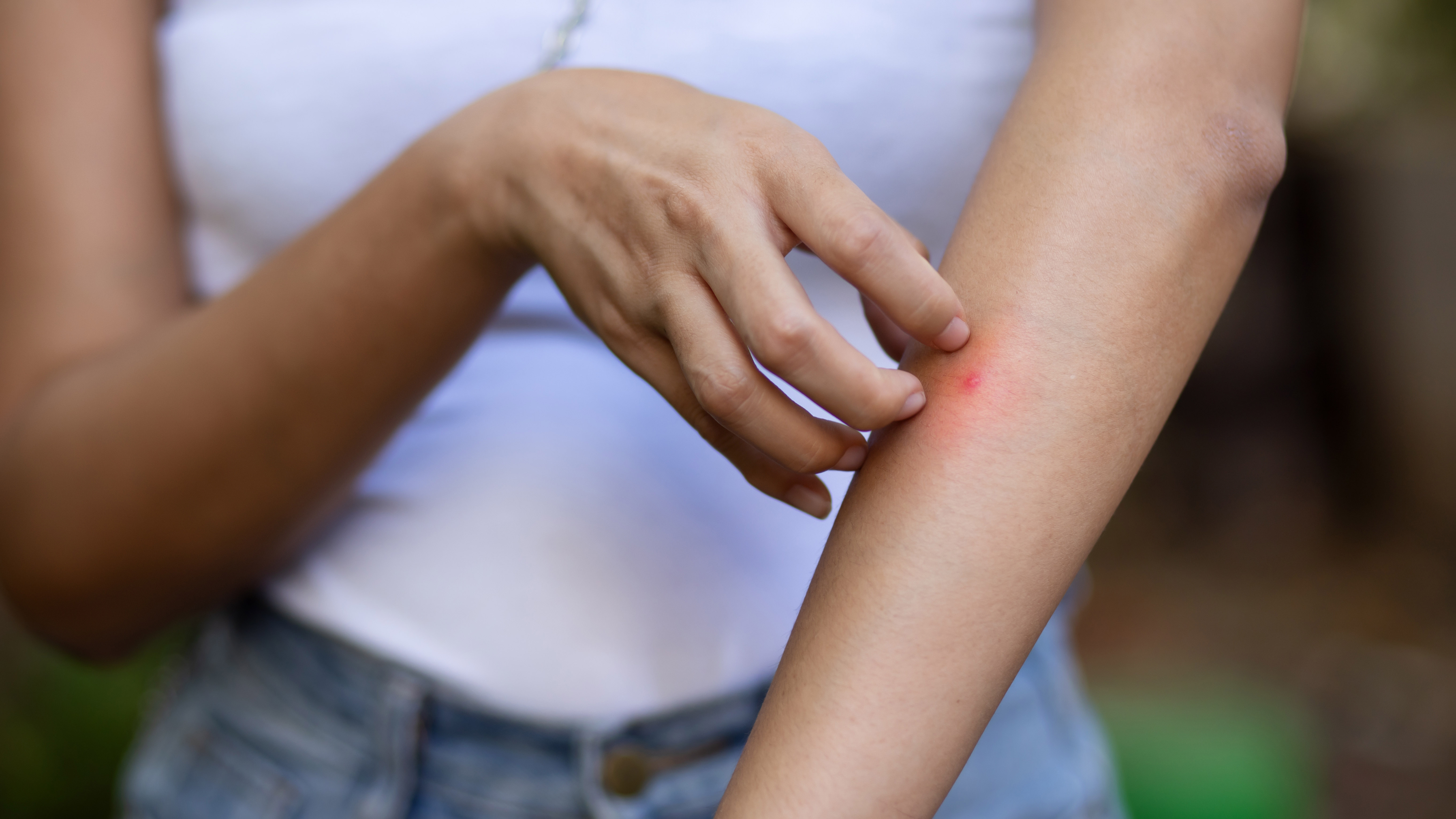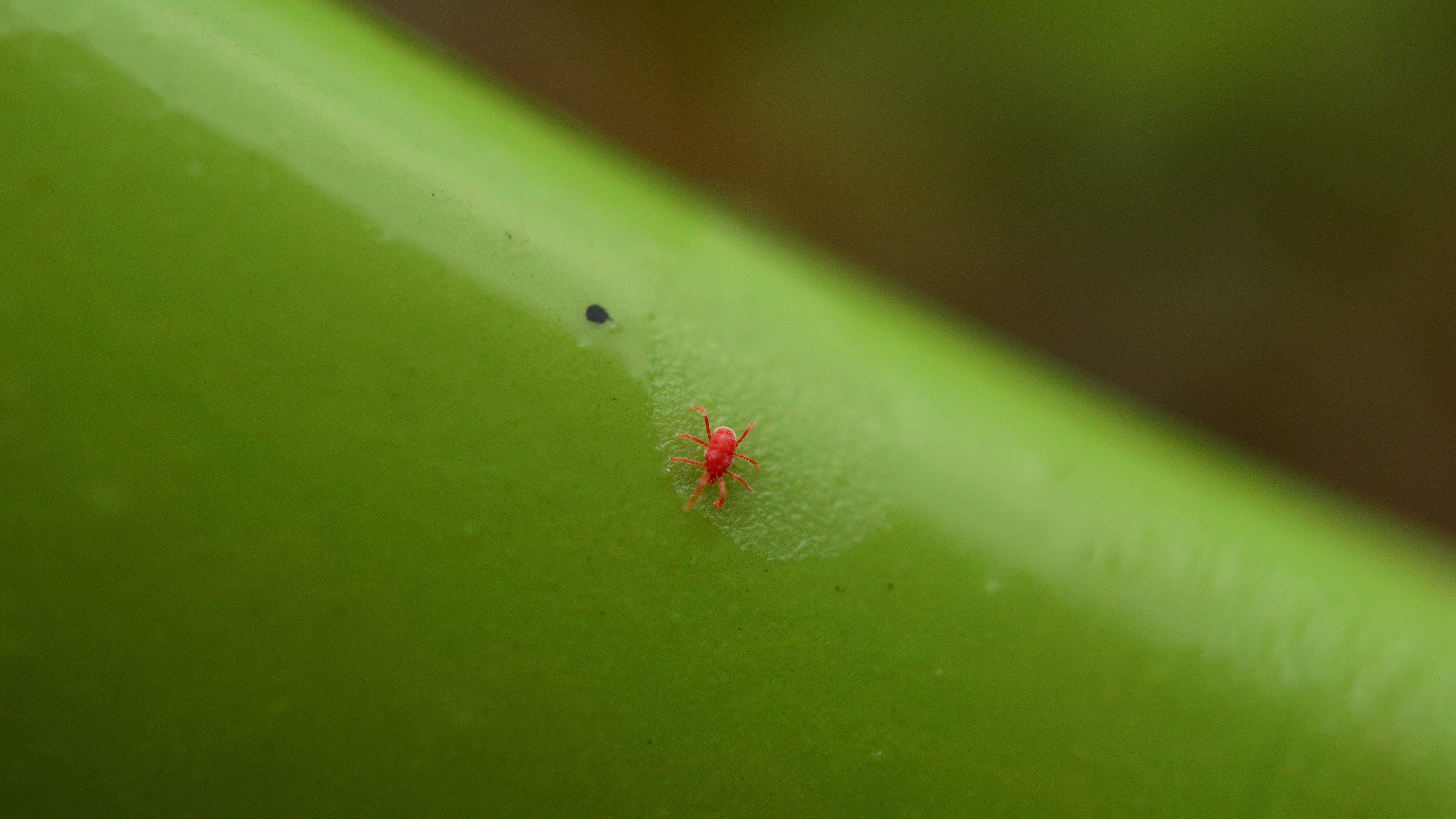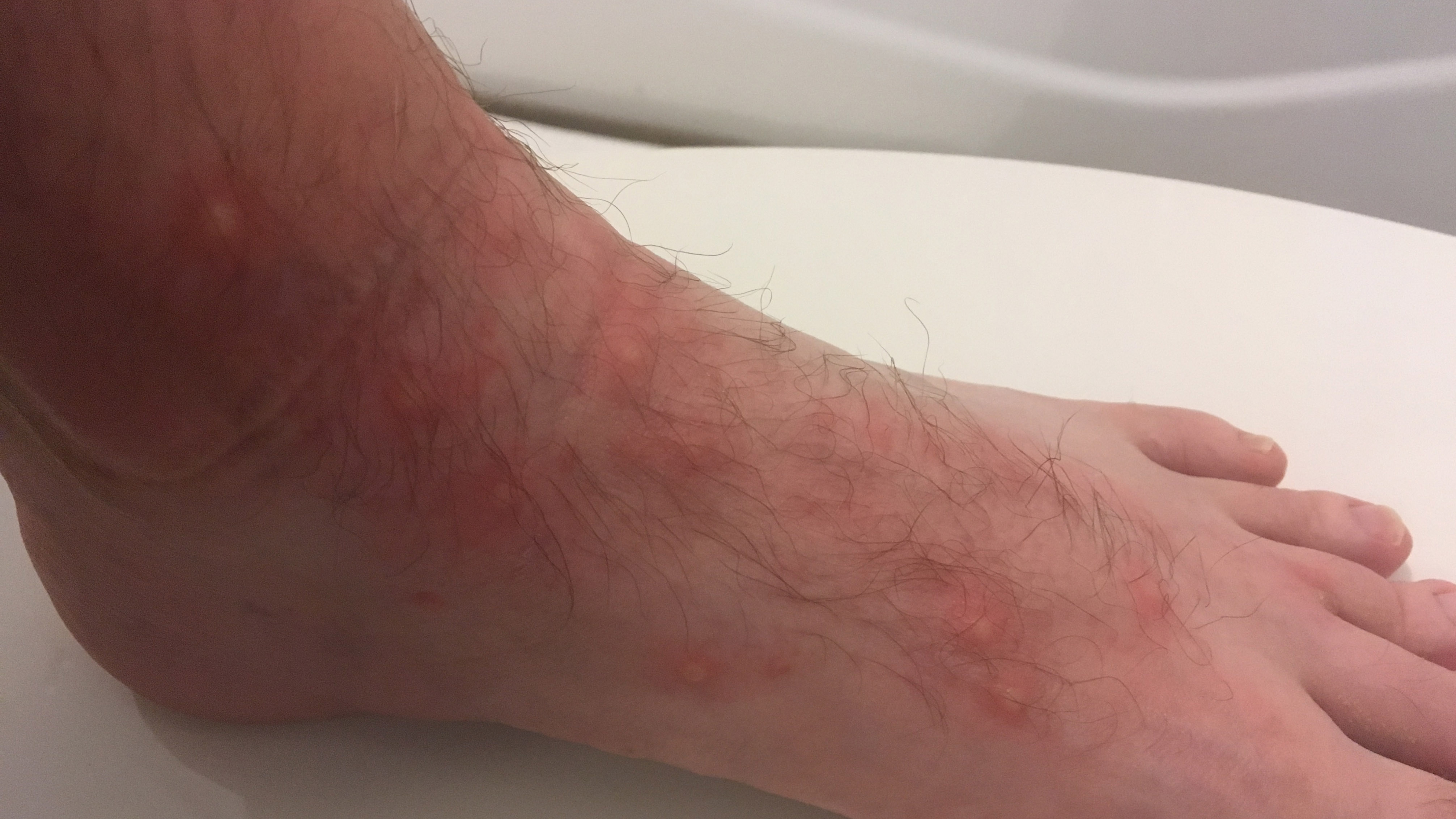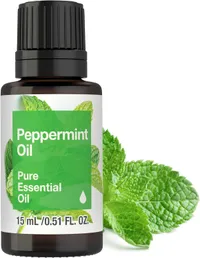Forget mosquitoes, this pest's bites are actually worse according to the experts
What happens when you get bit by chiggers and how to prevent them

Here at Tom’s Guide our expert editors are committed to bringing you the best news, reviews and guides to help you stay informed and ahead of the curve!
You are now subscribed
Your newsletter sign-up was successful
Want to add more newsletters?

Daily (Mon-Sun)
Tom's Guide Daily
Sign up to get the latest updates on all of your favorite content! From cutting-edge tech news and the hottest streaming buzz to unbeatable deals on the best products and in-depth reviews, we’ve got you covered.

Weekly on Thursday
Tom's AI Guide
Be AI savvy with your weekly newsletter summing up all the biggest AI news you need to know. Plus, analysis from our AI editor and tips on how to use the latest AI tools!

Weekly on Friday
Tom's iGuide
Unlock the vast world of Apple news straight to your inbox. With coverage on everything from exciting product launches to essential software updates, this is your go-to source for the latest updates on all the best Apple content.

Weekly on Monday
Tom's Streaming Guide
Our weekly newsletter is expertly crafted to immerse you in the world of streaming. Stay updated on the latest releases and our top recommendations across your favorite streaming platforms.
Join the club
Get full access to premium articles, exclusive features and a growing list of member rewards.
Summer is in full swing and with it comes the good, like sunshine and time with the grill, and the bad, like insect bites. And if you’ve spotted the odd bite but can't see any bugs, you’re probably wondering what caused it.
And while the most common culprit are mosquitoes, there is another blood-sucking pest you should be looking out for this summer. According to experts, small insects called "chiggers" could be the reason for your woes. These tiny mites mainly live outdoors in grassy or wooded areas near water, and can attach to your clothes and bite your skin.
In fact, chigger bites can be worse than mosquito bites, irritating more and can persist longer. So how do you know what the difference is? Luckily, we’ve got our pest experts on hand to share everything you need to know about chigger bites and how to prevent them.
What are chiggers?

“Chiggers are the larval stage of mites from the Trombiculidae family, and they’re almost invisible to the naked eye, measuring around 0.3 millimeters in length,” explains Tony King, pest control expert and owner and manager of The Pied Piper.
“They're typically bright red or orange, and you’ll most often find them in tall grasses, weedy areas, forest edges, and even in your own lawn if it’s not well-maintained.
Despite their microscopic size however, chiggers are known to cause intense reactions in most people. “They are a nuisance since, unlike adult mites, chiggers are parasitic,” adds King.
“Chiggers burrow into skin, typically where clothing is tight (such as waistbands, socks, or behind the knees), and emit enzymes that liquefy skin cells.
Get instant access to breaking news, the hottest reviews, great deals and helpful tips.
They don't bite or burrow into skin, but their feeding method provokes intense irritation and an allergic reaction in most people.”
How do chigger bites differ from mosquitoes?

Chigger bites are usually no bigger than the eye of a needle, and they appear as bright red bumps along the skin.
Emma Grace Crumbley, entomologist
Although we can easily identify a mosquito bite by its red, slightly raised mark on skin, how can we tell the difference between that and a chigger bite?
“Mosquito bites are typically isolated, raised welts with a small puncture mark in the centre,” states Matt Lenton, CEO at Safety Screens. “Chigger bites, however, often appear in clusters or lines, particularly in areas where clothing is tight, such as around socks, waistbands, or behind knees.
Additionally, chigger bites tend to be much smaller than mosquitoes." Mosquito bites may swell to the size of a dime in most reactions, or to the size of a nickel in allergic reactions," states Emma Grace Crumbley, entomologist at Mosquito Squad Plus."
Chigger bites are usually no bigger than the eye of a needle, and they appear as bright red bumps along the skin."
So what are the typical symptoms to look out for? “Chigger bites tend to itch more intensely and persist longer than mosquito bites,” adds Lenton. “The irritation is caused by the chigger’s digestive enzymes, which continue to trigger an immune response even after the mite has detached.”
An itching resulting from chigger bites is usually more severe than mosquito bites and can last for as long as 10–14 days if left untreated
Tony King, pest control expert
Worryingly, chigger bite symptoms can be more severe than bites from common mosquitoes.
“An itching resulting from chigger bites is usually more severe than mosquito bites and can last for as long as 10–14 days if left untreated,” adds King.
“They are more likely to occur where skin is thin or pinched between clothing, including ankles, groin, waistline, and armpits. And in addition, mosquito saliva contains anticoagulants, which is what your immune system is responding to, while chigger bites are tissue-dissolving enzymes, and that produces a more aggressive reaction.”
Tips to prevent chigger bites

As with repelling any pests, prevention is key. And so it’s important to put things in place to ensure you don’t attract chiggers to your home and yard.
“Regularly mow the lawn, keeping the grass short,” advises Marcus Griswold, entomologist and founder of Your Bug Club.
“Chiggers prefer tall grasses and weeds, so reducing their height eliminates a significant portion of their preferred habitat.
Consistently clear away leaf litter, grass cuttings, brush piles, and other organic debris. These materials provide protected places for chigger eggs and adults to overwinter and for larvae to hide.
Ensure lawns and garden areas have proper drainage and avoid excessive watering. Overwatering can create ideal moist conditions for chiggers.”
Additionally, you can protect yourself from problematic symptoms, so you can enjoy the warm weather outdoors — bite-free.
This pure peppermint oil is paraben free, and provides a fresh scent. Versatile to use in aromatherapy, or in an oil or reed diffuser. And while the fragrance is pleasant to our senses, it is also known to be a natural mosquito and pest repellent.
“Showering as soon as possible and washing thoroughly with soap and warm water after exposure to a chigger-infested area can eliminate larvae before they're able to feed,” advises King.
“Wash your clothing in hot water and dry it on high heat, as chiggers may remain attached to clothes and bite hours later.
You can also apply insect repellents with DEET or picaridin on skin and mosquitoes that have been treated with permethrin on clothing will deter chiggers from latching on in the first place.”
Of course, if you don't want to rely on chemical-based sprays, you can repel chiggers with natural scents. Essential oils, like tea tree oil or eucalyptus blends, are overwhelming for chiggers and mosquitoes alike, and will keep them at bay.
Bear in mind that if any bite symptoms persist, always seek medical attention straight away.
More from Tom's Guide
- I asked pest experts why mosquitoes always bite me
- 7 ways to prevent mosquito bites at night
- Is it ok to squish mosquitoes? I asked the pest control experts

As the Homes Content Editor, Cynthia Lawrence covers all things homes, interior decorating, and garden-related. She has a wealth of editorial experience testing the latest, ‘must-have’ home appliances, writing buying guides and the handy ‘how to’ features.
Her work has been published in various titles including, T3, Top Ten Reviews, Ideal Home, Real Homes, Livingetc. and House Beautiful, amongst many.
With a rather unhealthy obsession for all things homes and interiors, she also has an interior design blog for style inspiration and savvy storage solutions (get rid of that clutter!). When she’s not testing cool products, she’ll be searching online for more decor ideas to spruce up her family home or looking for a great bargain!
You must confirm your public display name before commenting
Please logout and then login again, you will then be prompted to enter your display name.
 Club Benefits
Club Benefits











